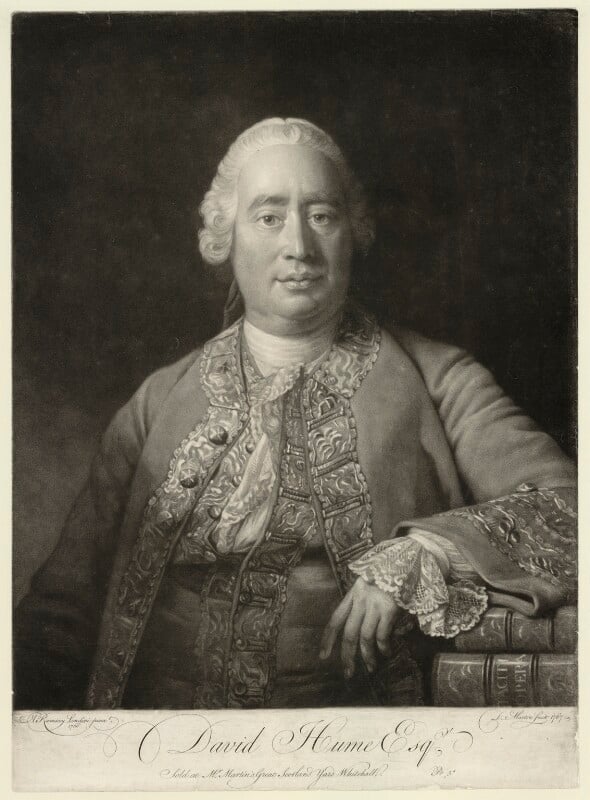
Serrano De Estena
Austin on Performative and Non-Performative Utterances
Austin (1979) refers to performative utterances as the act of doing something by saying something; utterances such as “I hereby bequeath…” or “I congratulate you…” perform an act of bequeathing one’s own assets to someone else and the act of congratulating someone for their accomplishments, respectively. Such performatives can be felicitous if (i) they follow proper social conventional procedures that precede the act being performed and (ii) they are done sincerely.
Performatives may be contrasted with non-performative utterances which are true or false. For example, when Captain Robert K Morgan says “I baptise thee, the Memphis Belle!”, the report of the aeroplane’s baptism, i.e., “The Memphis Belle was baptised by Morgan,” is truth-apt but Morgan’s baptising the Memphis Belle is not. It merely needs to be socially accepted that the baptism of the aeroplane may be initiated by Morgan and that he did so sincerely.
The criteria for performatives, laid out by Austin, make it clear that certain things such as saying ‘I do’ in a wedding ceremony, is not to describe or to state what one is doing, i.e., an action, but the act of doing it, what Austin refers to as indulging in it (1962, p. 6). But do the felicity conditions of performatives and the truth-aptness of constatives clearly demarcate one from the other?
Austin’s views on performatives have been widely contested by the likes of Lewis (1969/2002), Bach (1975), and Ginet (1979). They all share a common consensus that whilst performatives perform an act, they are also truth-apt. In a recent article, Simchen (2021) explains that performatives may be truth-apt because they are “self-stating or self-descriptive”. When one says, ‘I promise’ or ‘I do’ and follows (i) the proper social conventions and (ii) says it sincerely, uttering the phrases is performing the act of promising. So, it is true that one is promising. In this way, then, performatives are truth-apt.
If this is the case, according to Austin and Simchen’s further evaluation, it follows that any speech-act is truth-apt. I propose that this does not seem to be the case for promises, which is a view supported by David Hume and G.E.M. Anscombe. What I will go on to show is that there is no speech-act performed at the time of the promise’s utterance. Likewise, the utterance cannot be truth evaluable until the occurrence of the future action. Thus, the promise is neither a performative nor a constative at the time of utterance. This is what I believe to be a necessary criterion for both performatives and constatives that Austin has failed to prescribe in his definition.
Hume on Promissory Obligations as Speech-Acts
Hume (1739) questioned whether a promise was a speech-act. In saying ‘I promise to…’ you obligate yourself to do something for the listener(s). When I say to my parents, ‘I promise to make my bed in the morning,’ my obligation is to make my bed in the morning. If I make the bed, then the promise is fulfilled; if I don’t, then I have not fulfilled the terms of the promise. If a promise is a speech-act, then something must have been done when the promise was uttered. However, no part of the utterance itself involves a doing until such time as the promise is fulfilled or left unfulfilled.
Anscombe on Promises
Anscombe (1981) expands upon Hume’s views on promises. She argues that a promise may not provide us with an obligation to perform anything, in terms of wickedness, but I believe it applies wholly to the state of promising as a performative. Anscombe explains that even in the case of the utterance in a correct social conventional procedure, an obligation to perform what is promised may not be generated. It seems that a promise is being made to another party, but Anscombe repeats Hume’s provocative question: ‘Is there actually an obligation created?’
Introduction
There are words and phrases that we use in everyday speech that constitute an act of doing something rather than saying something. They have come to be known as “performative utterances,” which is largely based upon the pioneering work of J. L. Austin (1979). These utterances perform a certain act when they are judged to be felicitous and fail to perform a certain act (“misfire”) when they are judged to be infelicitous. Performatives may be distinguished from non-performative utterances or ‘constatives’, which can be characterised as descriptions of the world in its current state, and we deem that to be either true or false.
It is often said that the “I do” of the wedding ceremony is a promise, which is a unique kind of performative utterance. When, in the words of Austin, the bride and groom utter “I do,” it does not report on the marriage so much as indulge in it (cf. Austin 1962, 5-11).
The aim of this paper is to argue that promises are not performative utterances. To argue for this view, I call upon arguments by David Hume (1739) and by Elizabeth Anscombe (1981), where promises are not “naturally intelligible,” that is, they would not exist without having been introduced as a part of human social convention. Upon showing the mischaracterisation of promises as performatives, in that no form of act occurs at the time of the utterance, there is no description of reality in its current state either. Thus, Austin’s view of promises at least is neither a performative, nor a constative.

Image settings
Argument
Promises are not speech-acts.
Promises are not constatives.
Therefore, 'I do' in a wedding context is not a performative nor a constative.
Austin’s distinction between performatives and non-performatives along with Simchen’s evaluation, make for a plausible structuring of performatives and how they can be defined in language and the speech-act theory. But through the likes of Hume and Anscombe we come to see that promises cannot be naturally intelligible in forming any obligation to perform a certain act, by ways of any act of mind. Hume said that “Promises have no force, antecedent to human conventions” (519) which is expanded by Anscombe in which there is no way for promises to express any independent reality, but the creating of a new one, and the obligation to perform the act, in terms of a wedding and the utterance of ‘I do’, ceases to exist outside of the compulsion imposed on ourselves. This seems conclusive in the fact that making a promise, and specifically in a wedding context, with the utterance of ‘I do’, does not perform any action at the time of utterance, and cannot possibly be a performative. Furthermore, promises cannot possibly be constatives, either. If there is no act being performed at the time of utterance, it cannot possibly follow that it is truth-apt at the time of utterance. Thus, making a promise, a future contingent statement, rather than what Austin describes as a definition for performatives and constatives.
But is it possible for a future contingent statement to exist?
Anscombe, G. E. M. (1981). Rules, Rights, and Promises. Ethics, Religion, and Politics: The Collected Philosophical Papers of G. E. M. Anscombe V.III. pp. 97-103. Oxford, UK: Basil Blackwell.
Austin, J.L. (1962). How to do things with words. Clarendon Press.
Austin, J. L (1979). Performative Utterances. Philosophical Papers, 3rd edn. pp. 233-252. Oxford Academic.
Bach, K. (1975). Performatives Are Statements Too. Philosophical Studies 28.4: 229-236.
Ginet, C. (1979). Performativity. Linguistics and Philosophy 3: 245-265.
Harris, D & McKinney, R (2021). Speech-Act Theory. The Routledge Handbook of Social and Political Philosophy of Language, 1st edn., pp 70-90. Routledge.
Hume, D. (1739). Of the Obligation of Promises. A treatise of human nature, Book III, Part 2, Section V. pp. 516-525.
Kripke, S. (1982). Wittgenstein on Rules and Private Language. Harvard University Press.
Lewis, D. (1969/2002). Convention. Wiley-Blackwell.
Searle, J. (1975). Speech Acts. Cambridge University Press.
Simchen, O. (2021). On performatives being statements too. Thought: A Journal of Philosophy, Volume 10, Issue 4. pp. 275-281.
Wittgenstein, L. (1953/2009). Philosophical Investigations, 50th anniversary edition. London: Routledge.

Image settings

Image settings

Image settings

Image settings
"When I say 'I do', I am not reporting on the marriage, I am indulging in it." - J. L. Austin

Image settings

Image settings
Conclusion
References

Image settings
Acknowledgments
I would like to express my gratitude for some people that have helped me immensely throughout this endeavour.
Firstly, to my supervisor, Dr Joe Ulatowski, for the wealth of knowledge and learning, feedback, and invaluable effort towards myself and this project.
Secondly, to the Philosophy Programme at the University of Waikato for facilitating the foundation of understanding and in providing feedback for improvements.
Lastly, to those close to me, for their endless support and encouragement. I would not be where I am without them.
I extend my most sincere appreciation to all involved that have made this project possible.
Thank you!

Image settings

Image settings

Image settings

Image settings

Image settings

Image settings
"[Promises] are made or contain descriptions of possible future states of affairs." - Anscombe
Anscombe adds that there is a relation between rules and rights and promises in the way that rules compel us to do certain things, although they do not perform the acts in and of themselves. Just as with rules, promises are non-performative utterances and thus cannot possibly be performing an act as Austin would like for us to believe. Similarly, promises are no more than an expression of our intentions to do something at a future time in which there is no description of reality at its present time, and if there is to be no description or report on the world in its current state, then it fails to be not only a performative but also a constative.

Image settings

Image settings
Here's Hume on the matter. There does not seem to be an act performed at the time of utterance, since the ‘I promise to…’ pertains to a future time when an obligation may be fulfilled or left unfulfilled. For Hume, a promise is naturally unintelligible. He explains that for a promise to be naturally intelligible there must be faculties of the soul that are exerted when a promise is made in terms of resolution, a desire, and a willingness to perform.
Thus, Hume concludes that because the acts of mind cannot apply to the act that carries out the content of the promise, it must be the case that it is the willing of that obligation that arises from the promise, not the act of mind expressed through the promise.
Hume understood that one may still think that a promise was naturally intelligible, but he explains that the utterance could not naturally produce any obligation if there were an act of mind belonging to it. This is the fact of a promise, through being naturally intelligible, it would create a new obligation. The new obligation would in turn create a new sentiment in which we hold ourselves accountable for, but the willing of an action never creates a new sentiment for us to uphold. It only follows that there could not arise on any occasion that an obligation would naturally occur even if we supposed that the act of the mind could fall into a state of absurdity of willing an obligation. This makes promises have no form of enacting any performance, prior to social conventional procedures.